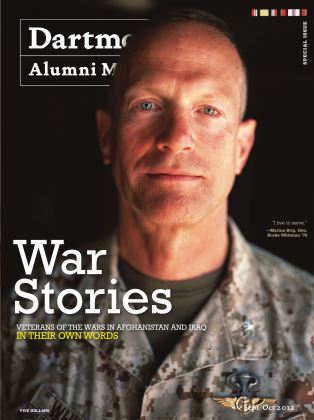Douglas Raber '64, a scientist and former director of the board on chemical sciences and technology at the National Academy of Sciences, and fellow scientist and wife Linda follow a smallpox outbreak and the panic it causes across a United States ready to counter any terrorist attacks in their first novel, Face of the Earth (GreenPoint Ventures). Stephen Hayes '66 draws on his service as a naval officer in Vietnam in this tale of one mans struggle for survival at sea while battling his memories of war in Light onDark Water (iUniverse). Angus King '66 recounts the five-and-a-halfmonth trip around the United States he and his family took in an RV after he left office as governor of Maine in Governor's Travels: How I Left Politics,Learned to Back Up a Bus, and FoundAmerica (Down East Books). Freelance journalist Nessa Flax'76 brings out the big and the small in herself and her rural North Country community with all the zest and wisdom drawn from a life of many friendships and small-town encounters in Voices in the FLills: Collected Ramblings from a Rural Life (Bunker Hill Publishing). Susan Cory '75, an award-winning residential architect in Cambridge, Massachusetts, follows a student at Harvard Architecture School as she tries to clear her name and uncover the events that led to a friends death in the debut novel, Conundrum: An Architectural Mystery (Cory Publishing). Robert Rudney'70, a senior advisor at the Department of Defense and recipient of its 2011 Outstanding Employee with a Disability Award, crafts a love story between a man who struggles with left-sided paralysis and a woman battling multiple sclerosis in his novel Lovers Lame (Booklocker.com), which is also a call for economic and social justice for people with disabilities. Stephen Shmanske '76, an economics professor at California State University, East Bay, co-authored two volumes of The OxfordHandbook of Sports Economics:Economics Through Sports (Oxford), which cover such topics as the economics of discrimination and sports franchise placement. Christopher Sellers '80, an associate professor of history at Stony Brook University, argues that the environmental movement originated within suburbs when people gained an appreciation for the nature around them in Crabgrass Crucible:Suburban Nature and the Riseof Environmentalism in Twentieth-CenturyAmerica (UNC Press). Class president Ronald Schram '64 gathers essays on giving back from classmates and members of the class of '14 in Generational Bridges to the World's Troubles:Personal Stories: How Dartmouth '64s and'14s Are Making a Difference in the Livesof Others (AuthorHouse). Peter Gilbert'76, executive director of the Vermont Humanities Council, shares 60 essays based on his Vermont Public Radio commentaries in I Was Thinking...:Travels in the World of Ideas (Wind Ridge Publishing). Brigid (Dotterer) Herrick'89, a mother of five, joins with her midwife to write an insiders guide to pregnancy and labor in Birth Happy:The Sawy Woman's Approach toa Satisfying Birth (Sawy Woman). Lawyer Allison Singh '97 explains why students may not have gotten into their dream college—and how to move on—in Getting Over NotGettingInA College Rejection Guide (Outskirts Press). Brendan Doherty '96, a political science professor at the U.S. Naval Academy, contends that the time a president spends campaigning for reelection is inextricably linked to the time he spends governing in TheRise of the President's Permanent Campaign (University Press of Kansas).
 View Full Issue
View Full Issue
More From This Issue
-
 Feature
FeatureCall of Duty
September | October 2012 By LISA FURLONG -
 Feature
FeatureThe Loneliest Job in the World
September | October 2012 By NATHANIEL FICK ’99 -
 Feature
FeatureOne Step at a Time
September | October 2012 By Matthew Mosk ’92 -
 Feature
FeatureBack Home
September | October 2012 By LISA FURLONG AND WELTON CHANG ’05 -
 Feature
FeatureBattle Scarred
September | October 2012 By JAMES WRIGHT -
 Feature
FeatureDeath and Memory
September | October 2012 By PHIL KLAY ’05
Books
-
 Books
BooksFACULTY PUBLICATIONS
November, 1924 -
 Books
BooksAlumni Articles
MARCH 1970 -
 Books
BooksALL THE BEST IN CUBA
February 1947 By C. F. Callahan '47 -
 Books
BooksHOW TO SUCCEED AT TOUCH FOOTBALL.
MARCH 1963 By CLIFF JORDAN '45 -
 Books
BooksIMAGE DE LA FRANCE.
APRIL 1964 By DAVID SICES '54 -
 Books
BooksICE HOCKEY
February 1942 By Sidney C. Hayward '26


